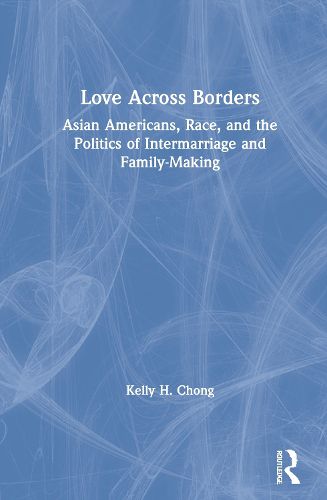Readings Newsletter
Become a Readings Member to make your shopping experience even easier.
Sign in or sign up for free!
You’re not far away from qualifying for FREE standard shipping within Australia
You’ve qualified for FREE standard shipping within Australia
The cart is loading…






High rates of intermarriage, especially with Whites, have been viewed as an indicator that Asian Americans are successfully assimilating, signaling acceptance by the White majority and their own desire to become part of the White mainstream. Comparing two types of Asian American intermarriage, interracial and interethnic, Kelly H. Chong disrupts these assumptions by showing that both types of intermarriages, in differing ways, are sites of complex struggles around racial/ethnic identity and cultural formations that reveal the salience of race in the lives of Asian Americans.
Drawing upon extensive qualitative data, Chong explores how interracial marriages, far from being an endpoint of assimilation, are a terrain of life-long negotiations over racial and ethnic identities, while interethnic (intra-Asian) unions and family-making illuminate Asian Americans’ ongoing efforts to co-construct and sustain a common racial identity and panethnic culture despite interethnic differences and tensions. Chong also examines the pivotal role race and gender play in shaping both the romantic desires and desirability of Asian Americans, spotlighting the social construction of love and marital choices.
Through the lens of intermarriage, Love Across Borders offers critical insights into the often invisible racial struggles of this racially in-between model minority group – particularly its ambivalent negotiations with whiteness and white privilege – and on the group’s social incorporation process and its implications for the redrawing of color boundaries in the U.S.
$9.00 standard shipping within Australia
FREE standard shipping within Australia for orders over $100.00
Express & International shipping calculated at checkout
High rates of intermarriage, especially with Whites, have been viewed as an indicator that Asian Americans are successfully assimilating, signaling acceptance by the White majority and their own desire to become part of the White mainstream. Comparing two types of Asian American intermarriage, interracial and interethnic, Kelly H. Chong disrupts these assumptions by showing that both types of intermarriages, in differing ways, are sites of complex struggles around racial/ethnic identity and cultural formations that reveal the salience of race in the lives of Asian Americans.
Drawing upon extensive qualitative data, Chong explores how interracial marriages, far from being an endpoint of assimilation, are a terrain of life-long negotiations over racial and ethnic identities, while interethnic (intra-Asian) unions and family-making illuminate Asian Americans’ ongoing efforts to co-construct and sustain a common racial identity and panethnic culture despite interethnic differences and tensions. Chong also examines the pivotal role race and gender play in shaping both the romantic desires and desirability of Asian Americans, spotlighting the social construction of love and marital choices.
Through the lens of intermarriage, Love Across Borders offers critical insights into the often invisible racial struggles of this racially in-between model minority group – particularly its ambivalent negotiations with whiteness and white privilege – and on the group’s social incorporation process and its implications for the redrawing of color boundaries in the U.S.